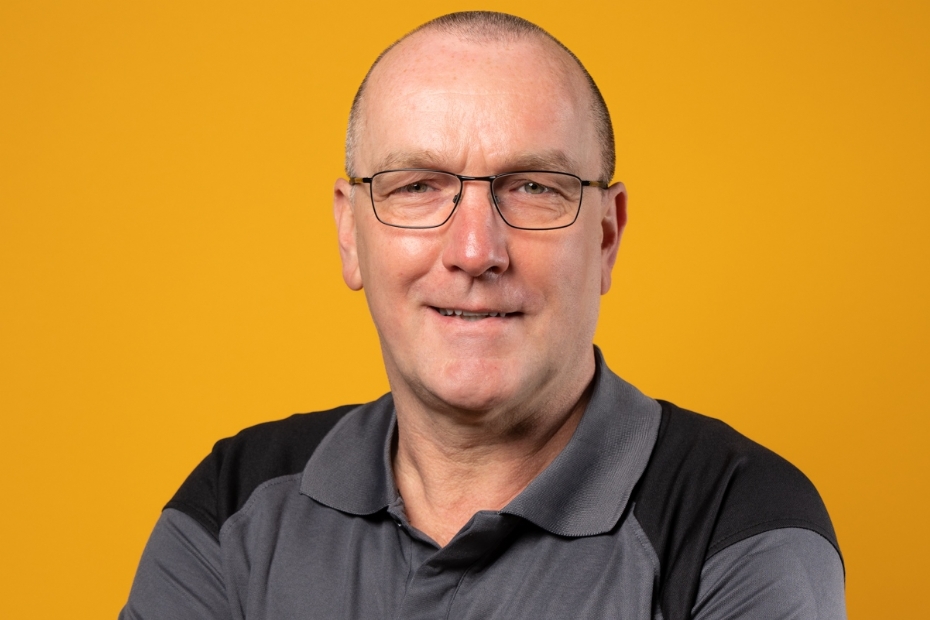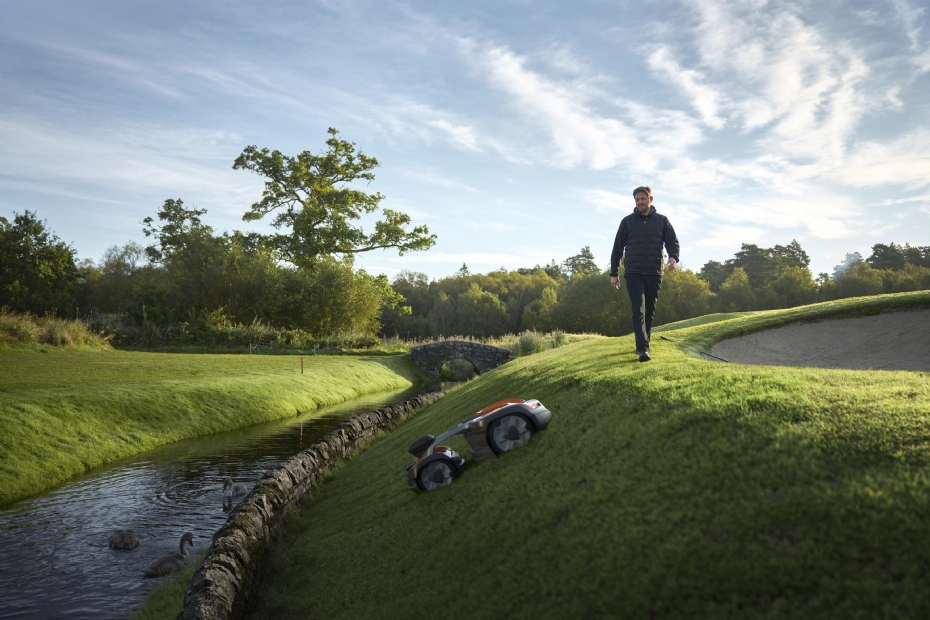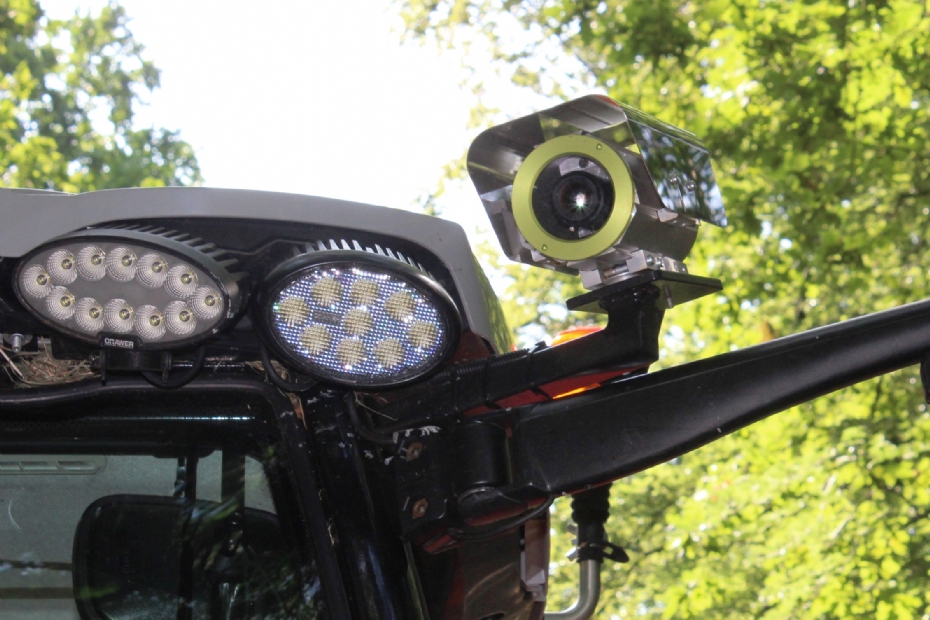Is AI a game-changer or just hype? |
|
|
|
|
 |
| 170 sec |
'With the severe labor shortage in the green sector, AI is truly a breakthrough'
There is still much to discuss about AI, or artificial intelligence, in the green sector. The technology is evolving rapidly but remains in its early stages. As a result, it is difficult to predict what lies ahead. That's why, in this edition of "The Statement," we ask the question: is AI a game-changer, or just a passing hype?
| Laurens Hattem: 'Some people want nothing to do with it. I felt the same way at first.' |
Here's a spoiler: none of the professionals we spoke to for this article consider AI a hype. It is an irreversible development that we must learn to embrace. 'But, as with all game-changers, there is also a hype cycle,' says IT professional and AI expert Timo Martosatiman. 'The promise that you won't have to do anything anymore is, of course, unrealistic.'
Labor productivity
According to Bart van Hal, marketing manager at Husqvarna, AI itself is not a game-changer. 'The real game-changer is labor productivity and work quality. AI is simply a tool to deploy people more efficiently for higher-value work.' This means employing well-trained professionals in a sector with abundant job opportunities. 'AI allows you to offer people more interesting jobs, making them more sustainable in the workforce. That is incredibly important.'
 | | Bart van Hal: 'AI is a tool to deploy people more efficiently for higher-value work.' |
|
|
Wijnand van Breda, technical innovation and product specialist at Wim van Breda, agrees with Van Hal. 'With the severe labor shortage in the green sector, AI is truly a breakthrough. The possibilities for green management are endless.' Van Breda refers to smart camera technology that detects and maps certain landscape elements—more on that later. 'These technologies relieve people of certain tasks, allowing them to focus on other responsibilities.' A game-changer, then? 'Absolutely.'
|
|
'This heralds a new digital species, fundamentally changing not just our work but also our understanding of self-awareness.'
| |
|
Revolution
For Martosatiman, artificial intelligence is an unprecedented revolution. 'Its impact surpasses that of all previous technological breakthroughs. This heralds a new digital species, fundamentally changing not just our work but also our understanding of self-awareness.' His advice to landscapers? 'Embrace AI. You can set yourself apart by offering more efficient, higher-quality services at lower costs. Have a junior staff member use ChatGPT to create planting plans, implement AI-driven robotic mowers, or optimize inventory management. That's also artificial intelligence.'
Cautious adoption
One person who has found ChatGPT invaluable is arborist Laurens Hattem, owner of Hattem Garden and Tree Care. 'When I sit at my desk in the morning, it's the first thing I turn on. I use it for everything related to text, such as drafting quotes.' However, he notices reluctance among colleagues. 'Some people want nothing to do with it. I felt the same way at first. But my coach Jelle Westra from Tuinkeur convinced me. Now, I wouldn't want to work without it.'
 | | Wijnand van Breda: 'There are already technologies on the market that the sector could truly benefit from.' |
|
|
This hesitation within the sector is something others recognize as well. 'There are already technologies on the market that the sector could truly benefit from, but they still need to be embraced,' says Van Breda. According to Van Hal, that's not always necessary. 'I don't believe in the idea that you're falling behind if you don't adopt AI. Some people are much happier without it, and that's perfectly fine.' However, for most, AI is no longer an abstract concept, Van Hal believes. 'The market is rapidly professionalizing. Young talent, in particular, is very interested in advanced technology.'
Smart applications
At Husqvarna, AI plays a key role in robotics. Thanks to artificial intelligence, robotic mowers can now make independent decisions under various conditions. 'Previously, the mower would randomly operate within its boundary wires, even in areas where mowing was unnecessary. Now, with its self-learning capability, it works more intelligently. It recognizes obstacles and knows where to mow more frequently, making the mowing process not only more efficient but also of higher quality. Additionally, satellite navigation has made boundary wires obsolete.'
 | | The robotic mower learns to work smarter through its self-learning capability. |
|
|
 | | Thanks to its modular design, the possibilities of the Mowhawk are endless. |
|
|
Another smart AI application is the Mowhawk, developed by Wim van Breda and Datacadabra. This camera system, mountable on a roadside mower, provides insights into biodiversity and detects unwanted elements, such as invasive species and roadside litter. Thanks to its modular design, the possibilities are endless. 'We are currently working on a nectar index module, which identifies flowering plants. But the system can also detect molehills and beaver activity.'
Future
What do these professionals expect for the future? 'Robots will increasingly share information, allowing them to provide better advice,' says Van Hal. He believes the biggest challenge is not in AI development itself but in human adaptation. 'It all depends on how willing we are to integrate AI into our lives. That's where the real challenge lies.' Van Breda adds, 'AI relies on data collection. We need to be careful that this data doesn't fall into the wrong hands. It can also be misused.'
 | | According to Timo Martosatiman, we are on a high-speed train with AI, and its impact is already visible. |
|
|
According to Martosatiman, we are on a high-speed train with AI, and its impact is already visible. 'Since 2022, developments have accelerated tremendously. There are already humanoid robots on the market that could eventually take over green management. It may sound futuristic, but it's just a matter of a few generations. Major transitions are coming in the next five to ten years.'
This article was originally published on February 20, 2025, on the De Hovenier website.
| LOG IN
with your email address to respond.
|
|
|
| There are no comments yet. |
|